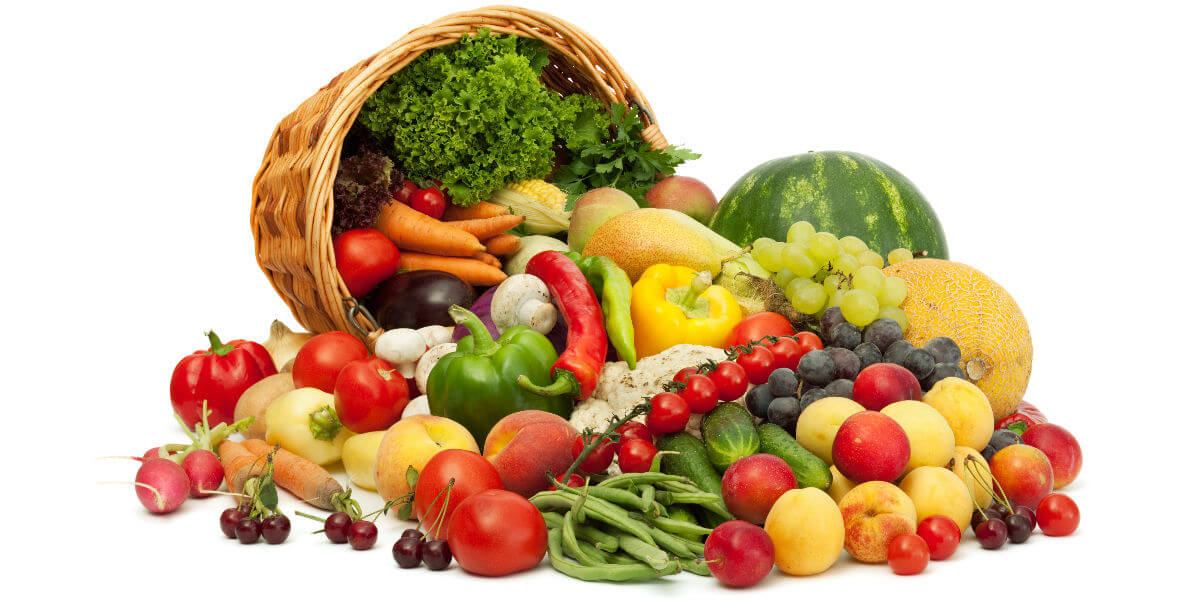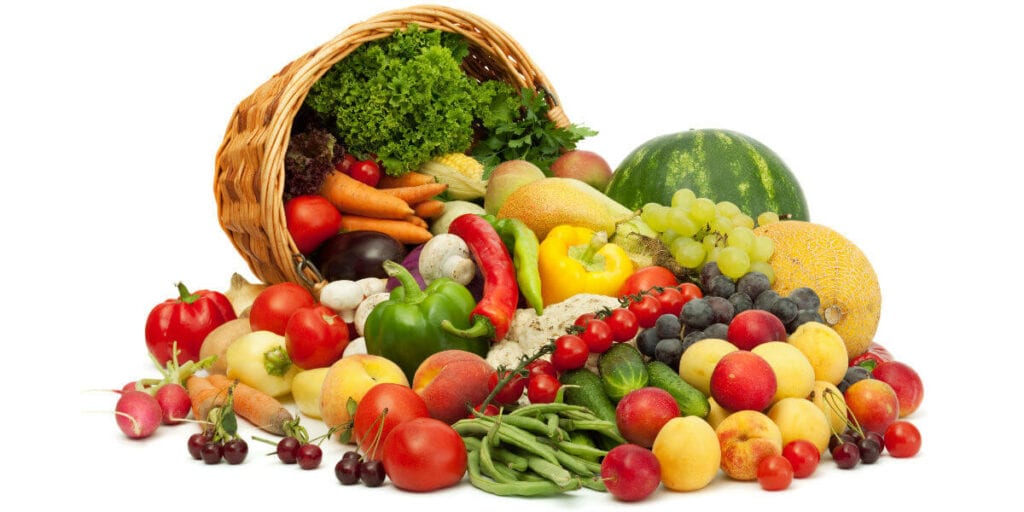Food & Nutrition, Myths & Facts, Nutrition
5 Health Benefits of Vegetarian Diet Everyone Should Know
Albert Einstein, Leonardo da Vinci, William Shakespeare, Charles Darwin, and Mahatma Gandhi had one common aspect – they all advocated a vegetarian diet and lifestyle.
In fact, George Bernard Shaw, vegetarian, famous writer, and political analyst of the early 1900s said,
“A man fed on whiskey and dead bodies cannot do the finest work of which he is capable.” Indeed, vegetarianism seems to have many benefits.
Vegetarian Diets
Time and again meat-eaters insist that vegetarian and vegan diets lack requisite protein and other essential nutrients, however, this is not necessarily true.
A carefully planned vegetarian diet can provide optimal nutrition and offer many health benefits.
On the contrary, a poorly planned vegetarian diet may pose some health risks.

5 Amazing Health Benefits of Vegetarian Diets
1. Rich in fruits and veggies
Vegetarian diets that include ample fresh fruits and vegetables contain an optimal amount of antioxidants like beta-carotene and vitamins C and E.
These vitamins safeguard the body against cell and tissue damage. They also provide plenty of dietary fiber linked to lower incidence of cardiovascular disease and obesity.
Phytochemicals present in such diets function as antioxidants, phytoestrogens, and anti-inflammatory agents.
Studies have shown vegetarians to have lower blood cholesterol levels and are less likely to develop heart disease than nonvegetarians.
2. These diets can be Low in fat
Vegetarian diets that are low in total fat and saturated fat coupled with other healthy lifestyle habits have been shown to reduce the risk of heart attack or stroke.
Some studies suggest that irrespective of body weight or sodium intake, high blood pressure (hypertension) is less of an issue among vegetarians than among non-vegetarians.
3. Vegetarian diet includes Vegan diet
Vegans are said to enjoy lower rates of cancer than non-vegetarians, especially prostate and colorectal cancer.
Moreover, studies show that red meat consumption is associated with increased risk of colorectal cancer. So going vegan and vegetarian seem to be good options!
4. Vegetarian diet benefits skin
Benefits of being vegetarian for skin
- A vegetarian diet is usually low in fat that helps in reducing chances of pore-clogging acnes.
- A vegetarian diet that mainly focuses on fruits and veggies are rich in antioxidants that make the skin radiant.
- Vegan diets are rich in Vitamins C and E that helps in fighting wrinkles.
- The fibre in whole grains, which is a major part of a vegetarian diet, acts as a detoxifier. This brings a natural glow to the skin.
5. Vegetarian diet benefits the environment
Environmental benefits of being vegetarian
1. United Nations reported that raising animals for food can result in a higher greenhouse effect. [1]
2. To produce meat the amount of water required is always larger than the amount of water required to produce plant food products such as wheat. That way a vegetarian diet helps in water conservation.
3. Non-vegetarian diet is at times responsible for endangering many species. This directly affects the food chain as well as the environment.
4. Animals are often fed with drugs to grow faster in order to be sold.
Consuming these animals directly forms a channel for those drugs into our bodies, which is harmful to us and the environment.
3 Probable Health Risks of Vegetarian Diets
Although vegetarian diets offer many health benefits considering they consume good portions of fruits and vegetables.
If vegetarian diets comprise a limited variety of foods, then the nutrition adequacy may not be fulfilled.
The more limiting the diet, the more likely are nutritional problems.
1. May lack nutrients
Vegan diets are poor sources of zinc, calcium, vitamin D, riboflavin, and vitamin B12.
This is because animal foods are the best sources of these nutrients – red meat for zinc; milk for calcium, vitamin D, and riboflavin; and any animal foods for vitamin B12.
2. Contains non-heme iron
Vegetarian sources of iron contain non-heme iron which is poorly absorbed by the body in comparison to heme iron present in animal foods.
3. This diet may inhibit mineral absorption
Vegetarians end up consuming a considerable amount of phytates (found in whole grains, bran, and soy products), oxalates (found in spinach, rhubarb, and chocolate), and tannins (found in tea).
These substances bind to minerals, rendering them unavailable for absorption by the body.
Our Verdict for Vegetarian Diets
So what should one do?
If you are a vegetarian, then you must ensure that you fulfil the nutrient adequacy. One sure shot way of doing this would be to have a balanced vegetarian diet.
For those who are vegans, go to a dietician and get a nutritionally balanced vegan diet plan,
For the non-vegetarian lovers, you could also benefit from eating good portions of fruits and vegetables at the same time reducing red meat intake.
